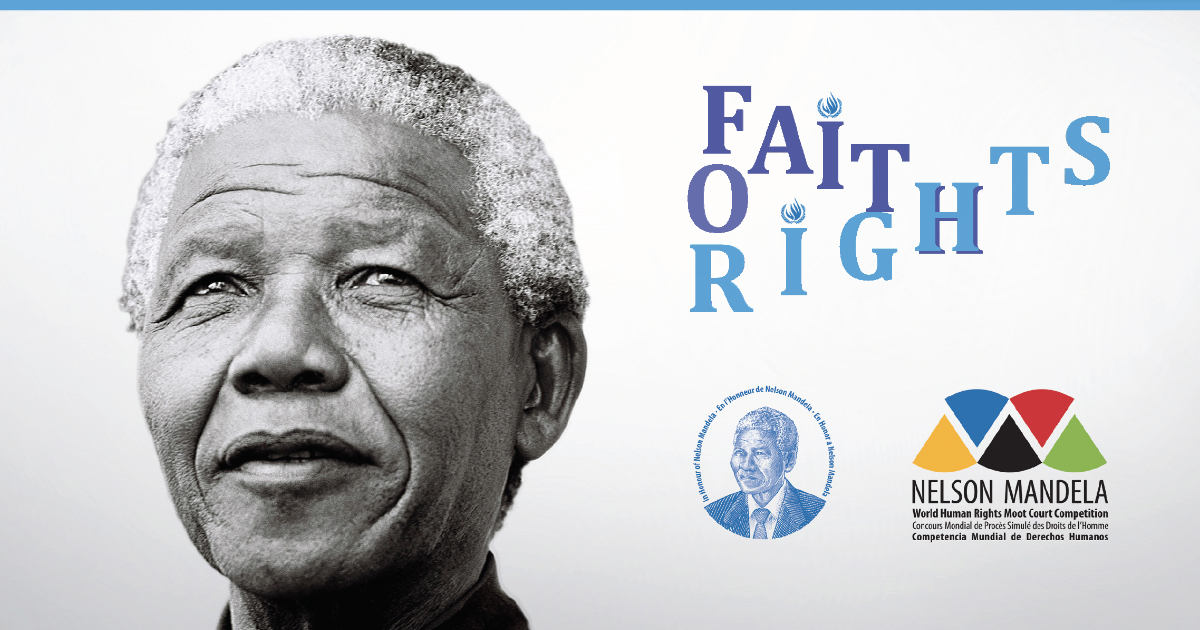Are you curious to learn more about the 18 commitments on #Faith4Rights, which are mentioned in the 2021 hypothetical case of the Nelson Mandela World Human Rights Moot Court Competition? Join online the #Faith4Rights webinar, which will take place immediately after the virtual opening ceremony of the Nelson Mandela World Moot Court Competition on 1 July 2021.
“No one is born hating another person because of the color of his skin, or his background, or his religion.”
– Nelson Mandela, Long Walk to Freedom
Peer-to-peer learning webinar on #Faith4Rights
Thursday 1 July 2021
18:00 SAST / CET
(directly after the Virtual #WorldMoot2021 Opening Ceremony, convert your time zone here)
The event will be live streamed on Facebook and YouTube.
The webinar will be facilitated by Dr Ibrahim Salama and Dr Michael Wiener from the Office of the United Nations High Commissioner for Human Rights. The methodology of this peer-to-peer learning is interactive, result-oriented and conducive to critical thinking. We will discuss a short case study related to pandemics, please see the #Faith4Rights Toolkit.
A tip for facilitators
The facilitator may wish to refer to the op-ed by UN High Commissioners Filippo Grandi and Michelle Bachelet concerning the coronavirus outbreak as a test of our systems, values and humanity (10 March 2020): “When fear and uncertainty kick in, scapegoats are never far away. We have already seen anger and hostility directed at some people of East Asian origin. If left unchecked, the urge to blame and exclude may soon extend to other groups – minorities, the marginalised or anyone labelled ‘foreigner’. […] Ceding space to rumour, fear-mongering and hysteria will not only hamper the response but may have broader implications for human rights, the functioning of accountable, democratic institutions. No country today can wall itself off from the impact of the coronavirus, both in the literal sense and – as falling stock markets and closed schools demonstrate– economically and socially. An international response that ensures that developing countries are equipped to diagnose, treat and prevent this disease will be crucial safeguarding the health of billions of people.” More information can be found here.
For more information, please contact
Dr Eduardo Kapapelo
Centre for Human Rights, Faculty of Law, University of Pretoria
eduardo.kapapelo@up.ac.za
Dr Michael Wiener
Office of the High Commissioner for Human Rights
mwiener@ohchr.org


